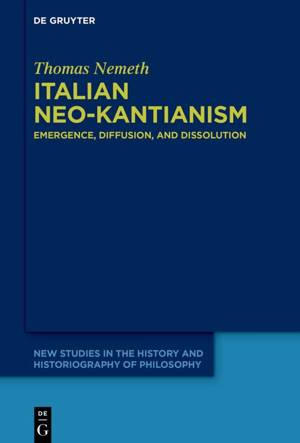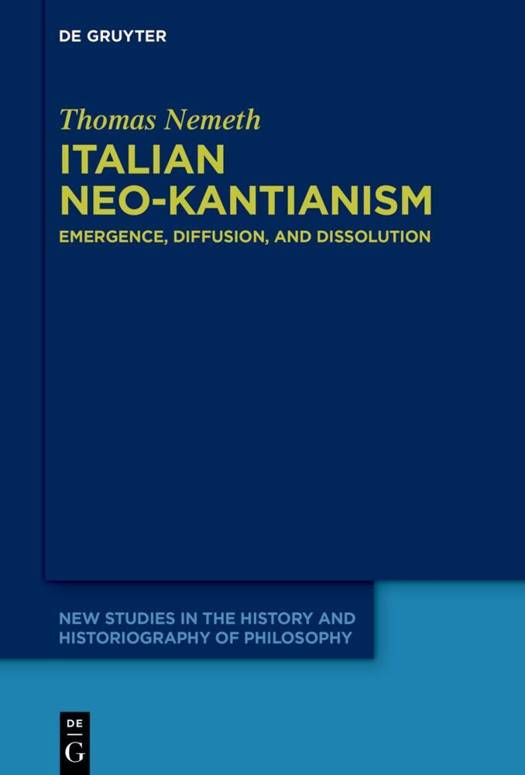
- Afhalen na 1 uur in een winkel met voorraad
- Gratis thuislevering in België vanaf € 30
- Ruim aanbod met 7 miljoen producten
- Afhalen na 1 uur in een winkel met voorraad
- Gratis thuislevering in België vanaf € 30
- Ruim aanbod met 7 miljoen producten
Omschrijving
Nemeth provides a comprehensive overview of the tumultuous times in nineteenth-century Italian philosophy and presents the main proponents of neo-Kantianism in dedicated chapters.
Kant's thought initially entered Italy via French sources but met resistance from the dominant philosophy of sensationalism. Those who faulted that latter philosophy turned to Kant, albeit only in piecemeal fashion, incorporating even elements from British philosophy. With the success of Italian unification came a small but vigorous Hegelian wave, one advocating an interpretation oriented toward recent political accomplishments, another followed strictly orthodox lines, and still another a pantheistic interpretation. In the wake of this Hegelian movement, several young philosophers initiated an Italian neo-Kantianism that centered on a realist reading of Kant's epistemology with hardly a nod to either transcendental idealism or the transcendental method. The Italian movement grew ever closer to positivism, particularly as the latter independently found support. But the final blow to the movement came from a revivified neo-Hegelianism. Although short lived, Italian neo-Kantianism confronted problems associated both with Kantian idealism and the role of philosophy.
Specificaties
Betrokkenen
- Auteur(s):
- Uitgeverij:
Inhoud
- Aantal bladzijden:
- 348
- Taal:
- Engels
- Reeks:
- Reeksnummer:
- nr. 15
Eigenschappen
- Productcode (EAN):
- 9783111550947
- Verschijningsdatum:
- 6/05/2025
- Uitvoering:
- Hardcover
- Formaat:
- Genaaid
- Afmetingen:
- 155 mm x 230 mm
- Gewicht:
- 619 g

Alleen bij Standaard Boekhandel
Beoordelingen
We publiceren alleen reviews die voldoen aan de voorwaarden voor reviews. Bekijk onze voorwaarden voor reviews.











